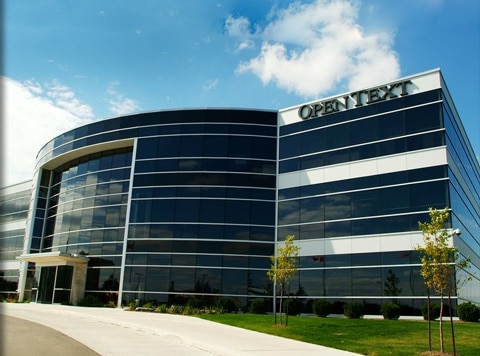
This article is part one of of a three-part series called Tech Sparks, which examines sub-sectors of Canadian technology that could speak an overall resurgence in the public Canadian tech sector. For parts two and three follow the links at the bottom of the story.
When Stanford grads William Hewlett and David Packard moved out of a garage in Palo Alto, California and into proper offices in the Stanford Research Park in 1953 it did not signal the birth of Silicon Valley as we know it today.
Nor was it when Robert Noyce and Gordon Moore left Fairchild Semiconductor four years later to form Intel.
Silicon Valley, the Southern part of the San Francisco Bay area that is home to many of the world’s largest technology companies, was actually born a generation later when the numerous spin offs from HP, Fairchild and Hewlett Packard spawned an environment that resulted in the $1.3 billion IPO of Apple on December 12th, 1980. That’s when Silicon Valley really began to experience the multiplier effect of availability of talent and capital.
The Kitchener-Waterloo “Tech Triangle” area is in its early days, but the 2005 move of Google, which acquired a small mobile firm founded by University of Waterloo students, Reqwireless, combined with the presence of Microsoft, which has had a partnership with the University of Waterloo for nearly a decade now, seem to mirror the moves of already established Kodak and GE into Silicon Valley in the 1980’s. That event, which has become a mere footnote in the area’s development, provided a legitimacy for investors that helped the flow of capital into the area.
The operations of Google and Microsoft in the Waterloo area may be a minor part of their overall plans, but their presence may already be having the same effect as that of GE and Kodak in California. Although Google recently traded in their broom closet of an office for a new 34,000-square-foot facility in Kitchener, at least one veteran of the area says the tail is not wagging the dog.
“Google’s arrival in Waterloo was a symptom of the changes happening, not the cause.” says Joseph Fung, a local industry vet and University of Waterloo grad. “Google has developed a pattern of acquisitions and growth where talent resides, and them coming to Kitchener Waterloo is consistent with that pattern.”
Fung, who heads up TribeHR, an innovative human resources software company that recently attracted $1 million in seed financing from Boston based venture capital firm Matrix Partners, says he has seen changes accelerate in the area in recent years.
Fung says new academic centres and organizations such as Communitech, the University of Waterloo’s Velocity Residence and Centre for Business Entrepreneurship and Technology means the culture of spinoffs is busier now than it ever has been, even for a University that is consistently ranked number highest in Canada for spinoff companies.
The tech culture of Waterloo is great enough that even the recent layoff of ten-per cent of the workforce of Research in Motion was not met with panic. Avvey Peters, VP of Operations of Communitech, the non-profit organization that represents nearly a thousand local companies, told the Financial Post, “The tech cluster here is strong and healthy. Even RIM, she says is “a product of the Waterloo eco-system, not the cause of it. ”
But its clear that for the region to fulfill its promise it needs not just a northern version of HP, but the Canuck equivalents of 3Com, Adobe ad Cisco, too. So, who are the candidates?
One of the more obvious contenders is Open Text (TSX:OTC). Open Text, whose 2011 financials, set to be released on August 10th, will likely show a company with more than a billion dollars in revenue, grew out of a collaboration between the University of Waterloo and the New Oxford English Dictionary. The project was a collaboration with the Oxford University Press to computerize the OED.
Engineers on the OED case soon realized that it required developing search technologies that could be used to quickly index and retrieve information. The search technology developed for this project, which incorporated full-text indexing and string-search technology, was recognized as being useful for other electronic applications. In 1991, at about the same time the Internet was emerging, the results of this project were commercialized by a private spin-off called OpenText Corporation.
As the Internet expanded in usage, OpenText grew because organizations found they needed to index and search their existing and growing stores of electronic information. In 1994, OpenText began hosting its OpenText 4 search engine on the World Wide Web, competing directly with the AltaVista Web search engine. In 1995, OpenText provided the search technology used by Yahoo! as part of its Web index.
Open Text’s CEO, John Shackleton, is bullish on the prospects of Canada’s Tech Triangle. “I think in 20 years Waterloo will still be a place, though much larger, that is still growing tech companies” he told Cantech Letter.
“The Waterloo area has really been a dynamic area for growth for many years, driven by OpenText, RIM and many other technology companies that call Waterloo home.” says Shackleton. “I think that’s owed to a combination of an entrepreneurial mind set, plus local universities, tech companies, and organizations such as Communitech, all focused on building Waterloo as a tech center, a Silicon Valley North.”
These days earlier stage public companies might point to the success of RIM and Open Text as reasons to remain independent, rather than sell before they become mega-sized, the way local cryptography company Certicom did with RIM or, more recently, Dalsa (TSX:DSA), which was founded by Waterloo electrical engineering professor Savvas Chamberlain, did late last year, selling itself to California based industrial conglomerate TeleDyne (NYSE:TDY) for $341 million.
A decade of futility for technology stocks in Canada leaves means one stark fact; there are just eight technology stocks in Canada’s Tech Triangle with market caps larger than $100 million. Companies like Sandvine (TSX:SVC), and Descartes Systems (TSX:DSG) have delivered recent returns for investors, but a full scale tech revival will no doubt be driven by a swath of companies that are still private.
A cursory look at Waterloo job boards underlines the weakness of the public markets for technology today. You’ll find Open Text, Descartes and Dalsa are hiring, but the listings are dominated by up and coming companies such as Pravala, Primal Fusion and Desire2Learn.
This is Part One of a Three Part article called Tech Sparks. For Part Two CLICK HERE. For Part Three CLICK HERE
_______________________________________________________________________________
_______________________________________________________________________________
Leave a Reply
You must be logged in to post a comment.





 Share
Share Tweet
Tweet Share
Share




Comment